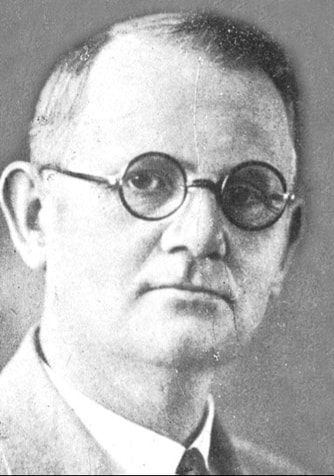Payne, Tillman S.

Tillman Sietz "T.S." Payne (1876-1951) served as the fourth superintendent of the Bible Training School, now Lee University, from 1924 to 1930.
In 1924 T.S. Payne was elected Superintendent. He was 48 years old and a Tennessee-native from Van Buren County. Superintendent Payne guided the school effectively for six years. Enrollment steadily increased and reached 87 students his last year in office.
A significant contribution he made during his tenure, and its importance perhaps he may not have understood at that time, was realizing the need for additional subjects to be taught to help form a more well-rounded student. As a result, Superintendent Payne hired Ione Moore in 1925 to teach literary courses to provide a broader knowledge base for students. In time, other programs would be added that ultimately helped expand the school’s curriculum and reach.
Payne was married to Mary Ellen Crain Payne (1881-1950) and was a well-known minister and leader in the Church of God. Prior to his appointment as Superintendent, Payne had earned a reputation as an energetic preacher, effective communicator through writing and publishing, church administrator, and a determined evangelist. He joined the Church of God as the result of a revival conducted by J. W. Buckalew at Armuchee, Georgia in 1910. The following year, Payne was ordained to ministry. He traveled extensively preaching and organizing churches in several states, including Alabama, Florida, Illinois, Louisiana, Maryland, Tennessee, West Virginia, and others. In one meeting along the Cumberland Mountains of Tennessee in 1914, he reported having preached nightly under a tent for more than a month. It was new territory for the Church of God and his preaching was met with excitement and persecution. He reported he only received sixty cents in offerings during that long month, but he was determined to see the church established there. It is this level of commitment that Payne gave to all his ministerial endeavors, including his role leading the Bible Training School.
Payne served the Church of God in numerous administrative roles, including as an original member of the Supreme Council (or Council of Twelve and now known as the Executive Council) in 1917. He served in that role until 1939. He also was a member of the Missions Board in 1917-18 and again in 1925, as well as serving as state administrative bishop of Alabama, Illinois, New Jersey, Tennessee, Texas, and Pennsylvania. Although given various administrative duties, Payne was more comfortable preaching and pastoring and his communication style was more effective in those areas of ministry. He retired from active ministry in 1948 and then served two years as bookkeeper for the Tennessee Church of God state office prior to his death.
Payne died in 1951 and is buried at Fort Hill Cemetery in Cleveland, Tennessee.
/ L.F. Morgan
In 1924 T.S. Payne was elected Superintendent. He was 48 years old and a Tennessee-native from Van Buren County. Superintendent Payne guided the school effectively for six years. Enrollment steadily increased and reached 87 students his last year in office.
A significant contribution he made during his tenure, and its importance perhaps he may not have understood at that time, was realizing the need for additional subjects to be taught to help form a more well-rounded student. As a result, Superintendent Payne hired Ione Moore in 1925 to teach literary courses to provide a broader knowledge base for students. In time, other programs would be added that ultimately helped expand the school’s curriculum and reach.
Payne was married to Mary Ellen Crain Payne (1881-1950) and was a well-known minister and leader in the Church of God. Prior to his appointment as Superintendent, Payne had earned a reputation as an energetic preacher, effective communicator through writing and publishing, church administrator, and a determined evangelist. He joined the Church of God as the result of a revival conducted by J. W. Buckalew at Armuchee, Georgia in 1910. The following year, Payne was ordained to ministry. He traveled extensively preaching and organizing churches in several states, including Alabama, Florida, Illinois, Louisiana, Maryland, Tennessee, West Virginia, and others. In one meeting along the Cumberland Mountains of Tennessee in 1914, he reported having preached nightly under a tent for more than a month. It was new territory for the Church of God and his preaching was met with excitement and persecution. He reported he only received sixty cents in offerings during that long month, but he was determined to see the church established there. It is this level of commitment that Payne gave to all his ministerial endeavors, including his role leading the Bible Training School.
Payne served the Church of God in numerous administrative roles, including as an original member of the Supreme Council (or Council of Twelve and now known as the Executive Council) in 1917. He served in that role until 1939. He also was a member of the Missions Board in 1917-18 and again in 1925, as well as serving as state administrative bishop of Alabama, Illinois, New Jersey, Tennessee, Texas, and Pennsylvania. Although given various administrative duties, Payne was more comfortable preaching and pastoring and his communication style was more effective in those areas of ministry. He retired from active ministry in 1948 and then served two years as bookkeeper for the Tennessee Church of God state office prior to his death.
Payne died in 1951 and is buried at Fort Hill Cemetery in Cleveland, Tennessee.
/ L.F. Morgan
